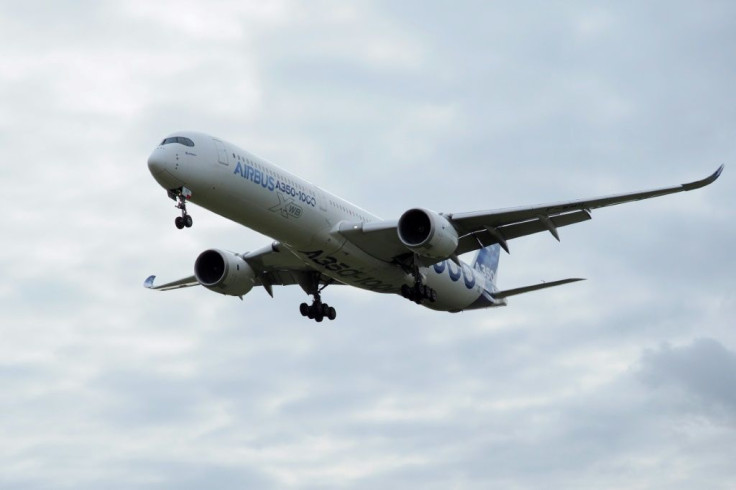WTO Approves US Tariffs Worth $7.5 Bn On EU Goods In Airbus Retaliation

The World Trade Organization on Wednesday gave Washington the green light to slap annual tariffs on $7.5 billion (6.8 billion euros) worth of EU goods in retaliation for the bloc's illegal support of Airbus.
The ruling is the largest arbitration award in WTO history and a landmark moment in the Airbus-Boeing battle, which threatens to intensify already strained trade relations between the US and the European Union.
In Washington, President Donald Trump hailed the decision, calling it a "big win" for the United States and claiming credit for the outcome of the 15-year-old case.
"We're having a lot of wins at the WTO," Trump said. "All of those countries were ripping off the United States for many years and they know I'm wise to it."
The EU immediately threatened to respond to any US move.
"If the US decides to impose WTO authorized countermeasures, it will be pushing the EU into a situation where we will have no other option than do the same," Brussels said in a statement.
The case began in 2004, when Washington accused Britain, France, Germany and Spain of providing illegal subsidies and grants to support the production of a range of Airbus products.
It has since been mired in the WTO's complex dispute settlement system, which allows for a range of appeals.
But Wednesday's decision, which cannot be appealed, marks the first time the US has been cleared under international trade law to slap countermeasures on EU products. The sanctions could be in place by the end of the month.
With its Brexit deadline less than a month away, Britain said in a statement that "it should not be subject" to any sanctions Washington imposes on the EU and that it was seeking confirmation from the WTO that it was fully compliant will all rulings related to Airbus.
Counter case
Brussels will also soon get the chance to impose its own WTO-approved tariffs.
In a separate case launched in 2005, the EU alleged that Boeing had received $19.1 billion worth of prohibited subsidies from 1989 to 2006 from various branches of the US government.
After earning a series of victories in that equally epic case, Brussels asked a WTO arbitrator to give it permission to slap retaliatory tariffs on $12 billion in US goods.
The WTO is likely to decide on a lower number in a decision expected in about six months.
The Europeans made a proposal in July to call a truce in which both sides would admit fault and figure out ways to curtail airline subsidies. The EU and US have reached such settlements in the past.
EU Trade Commissioner Cecilia Malmstrom said this week that there had not yet been a positive US response to that proposal but that the bloc would continue to pursue a deal that avoided further tariffs and a deterioration in transatlantic trade.
"Our readiness to find a fair settlement remains unchanged," the EU statement said, adding that the bloc had "shared concrete proposals with the US for a new regime on aircraft subsidies" but had not yet received a response.
The Airbus-Boeing row is just one of several issues stoking transatlantic tensions that quickly descended into acrimony when Trump took office in 2017.
Trump has embraced a protectionist agenda, slapping import duties on steel and aluminum from the EU and other allies, while also threatening tariffs on European cars.
The US leader and European Commission President Jean-Claude Juncker agreed in July 2018 to a cease-fire in the conflict and trade talks but they have so far led nowhere.
burs-dg/ft
© Copyright AFP {{Year}}. All rights reserved.





















